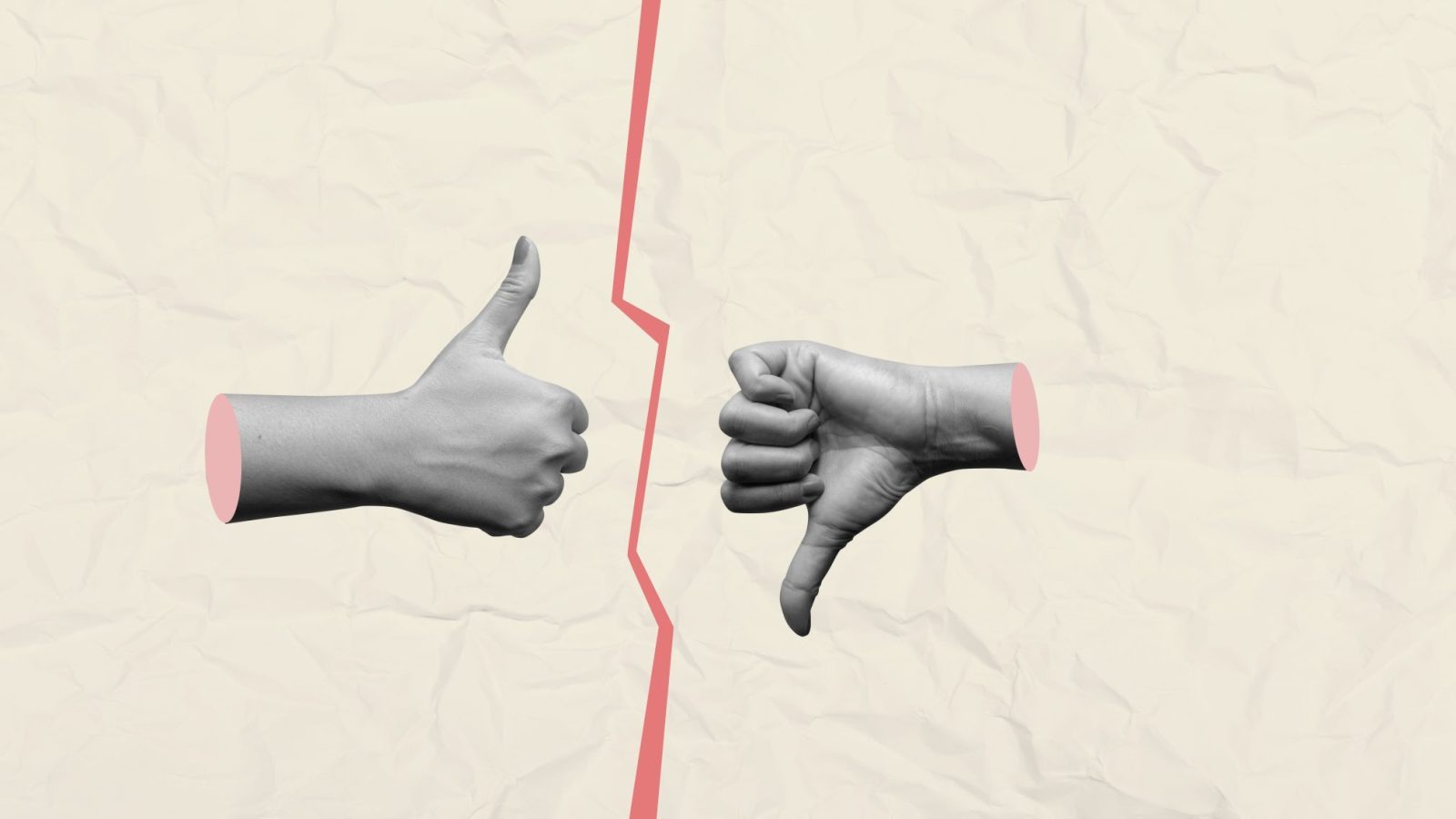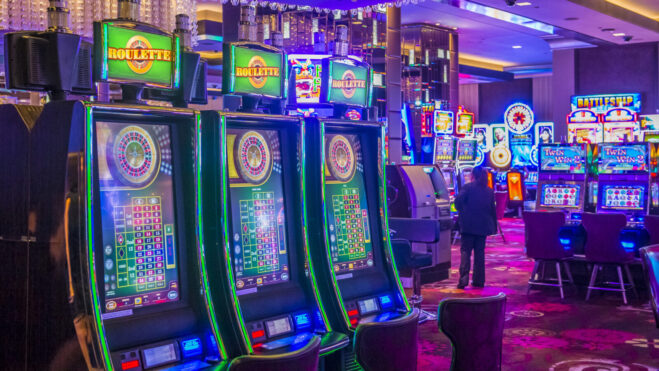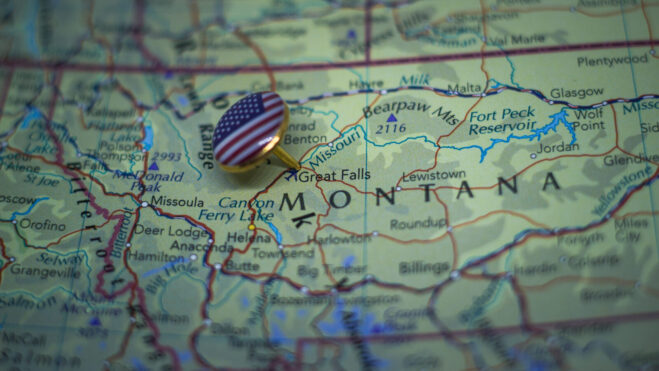Ruddock Report: There’s Always A ‘But’ With Online Casino Contenders
In state after state, the obstacles to legalization just keep proving too powerful to overcome
7 min

Our monthly look at the online gambling landscape includes the current legal and regulatory landscape, prospective online casino and online poker states, and significant trends to watch.
If you’re a proponent of legalizing online gambling, 2024 and 2025 have been absolute disasters. Not a single state has passed a bill legalizing online casinos or mobile sports betting (Missouri managed to get online sports betting approved via referendum in 2024, by the slimmest of margins).
2026 isn’t shaping up to be much better, considering the best contenders all face significant obstacles.
These states are contenders, but …
Massachusetts
A new bill (H 4431) introduced in August offered some hope, but efforts to legalize online casinos are receiving very little attention, even H 4431, which also addresses the more hot-button topic of sweepstakes casinos.
Obstacles:
- The upcoming launch of online lottery products, including instant win tickets that look and play like online slots. As I’ve previously noted, the Massachusetts Lottery isn’t going to want to compete on that front with online casinos.
- Lawmakers and regulators are dealing with blowback from sports betting and hearing from plenty of concerned voices about the associated social harms. Opponents have framed online casinos as even more addictive.
- The ongoing saga of the First Light Casino in Taunton. As the recently opened welcome center expands into a full-fledged casino, the state must determine how to incorporate the tribal casino into an online casino bill.
- Union opposition and likely opposition from Wynn (which operates Encore Boston Harbor) and Penn National Gaming, which has opposed online casino efforts that offer untethered licenses — something that is likely to be included, given that DraftKings is headquartered in Boston.
New York
New York remains a long-time contender for online casino legalization, but as has been the advice for a decade: Don’t hold your breath. S 2614 stalled amid budget shortfalls, and discussions shifted to bans on sweepstakes sites.
Obstacles:
- Gov. Kathy Hochul’s ambivalence, including omitting it from her 2025 address and vetoing related casino licensing acceleration.
- Union opposition due to fears of job losses at land-based casinos, and divisions within the land-based industry, with some supporting and others criticizing expansion.
- Delayed downstate casino licenses until late 2025 or Q1 2026, creating a sequencing dilemma that complicates online efforts — who receives the licenses will play a significant role in future online casino efforts.
- Like Massachusetts, there is a need to include tribal operators in any framework.
Maine
Maine’s LD 1164, passed by the legislature in 2025, grants online casino exclusivity to the state’s four tribes. Still, the legislation remains in limbo as of September 2025 after Gov. Janet Mills deferred action in July, with an adverse decision expected in January 2026.
Obstacles:
- Expected veto or pocket veto by Gov. Mills, which is supported by the Gambling Control Unit.
- Contentious exclusion of commercial operators like FanDuel (which opposed the bill) and in-state casino operators Penn and Churchill Downs, pitting tribal against commercial interests. Tribes are already partnered with DraftKings or Caesars, shutting out competitors.
Florida
Florida is a potential 2026 outlier for online casino legalization via a new compact with the Seminole Tribe, as negotiations are mandated within three years of the 2021 compact that brought about mobile sports betting (effective late 2023).
Obstacles:
- While the governor can agree to a new compact with the Seminole Tribe, it requires state legislature approval. With the Seminole Tribe’s fierce opposition to any non-monopoly model, an online casino effort is likely to lose the support of many lawmakers who have land-based gambling interests in their districts.
- There is an ongoing push from commercial and national operators (e.g., FanDuel, DraftKings, BetMGM) for an open sports betting market with partnerships, and that would likely increase if online casinos were on the table.
Wyoming
Wyoming’s 2025 efforts to legalize online casinos, including HB 162, stalled due to tribal opposition, despite a favorable revenue report. Tribal interests are on the record in opposition, claiming that the report didn’t accurately portray the threat of gambling expansions.
Obstacles:
- Strong tribal opposition (Northern Arapaho and Eastern Shoshone) fearing cannibalization of brick-and-mortar revenues amid gambling proliferation.
- The state’s short legislative sessions limit progress, as bills like HB 162 can advance to committee but fail to cross the finish line during the condensed sessions.
- The state lacks fiscal urgency without a pressing budget need.
Arkansas
Arkansas’s HB1861, introduced late in 2025 to legalize up to three online casino licenses, was withdrawn for interim study in May due to stakeholder divides.
Obstacles:
- There is a deep divide between supporters like Saracen Casino (pushing to combat offshore sites and retain revenue) and opponents like Oaklawn (fearing cannibalization).
- Broader bill elements are complicating the effort, like expanding NIL drawing games and criminalizing dual-currency sweepstakes.
2025 online casino bills
The Ruddock Report will revise this list as new bills are introduced.
LEGAL ONLINE GAMBLING ONLINE POKER-ONLY
ACTIVE LEGISLATION LEGISLATIVE EFFORTS FAILED

Active bills
Ohio
- HB 298, sponsored by House Finance Committee Chair Brian Stewart
The bill received a first hearing in the Select Committee on Gaming shortly after its introduction, but no further progress has been reported.
- SB 197, sponsored by Sen. Nathan Manning
As of late-August, it remains in the introductory phase with no reported committee action or passage, though broader discussions on regulated online casino gaming continue.
The landscape:
Ohio is my spotlight state this month. I’m hearing a lot of backchannel chatter about these online casino bills. While there is some support, there is also significant opposition, including two Ohio casino operators that are members of the National Association Against iGaming (NAAiG): JACK Entertainment and Churchill Downs.
A sometimes opponent is Penn Entertainment, which has lobbied in 2025 against bills that allow for untethered licensing.
And then there is Gov. Mike DeWine, who doesn’t seem to be a fan of gambling (given his efforts to double the sports betting tax rate in the state twice, once successfully). On iCasino specifically, DeWine recently said, “I’m not for it. Basically, to put a casino in everybody’s hands, 24/7, I think, is probably not a great idea. And I think it will cause more pain and suffering … as far as gaming addiction. I don’t usually use the ‘V-word’ [veto], but, you know, I’m very much against this.”
New York
- S 2614, sponsored by Sen. Joseph Addabbo Jr.
The bill was introduced on Jan. 21 and referred to the Racing, Gaming, and Wagering Committee. It has appeared on the legislative radar a couple of times. However, the bill has been overshadowed by the awarding of downstate casino licenses, leaving little legislative bandwidth for iCasino in 2025. It remains stalled in committee with no further action.
Massachusetts
- HD 2393 (now tracked as H 4431), sponsored by Rep. David Muradian
Filed as a docket on Jan. 16 and referred to the Committee on Economic Development and Emerging Technologies on Aug. 18, this is the latest effort, which aims to legalize online casinos while also prohibiting sweepstakes sites.
- HB 332, sponsored by Rep. Daniel Cahill
Introduced Feb. 27 with a hearing held on June 23 by the Joint Committee on Consumer Protection and Professional Licensure.
- SB 235, sponsored by Sen. Paul Feeney
Introduced Feb. 27 and discussed alongside HB 332 in the June hearing.
Illinois
- SB 1963, sponsored by Sen. Cristina Castro
Introduced Feb. 6, with first reading, the legislation proposes a 25% tax on internet gaming, which is likely a non-starter considering Illinois’ recent treatment of sportsbooks via the tax code.
- HB 3080, sponsored by Rep. Edgar González, Jr.
A companion bill to Castro’s Senate bill.
Illinois looks great on paper, but the problem is, (almost) no one wants to expand into online casinos except online casino companies, evidenced by nearly 1,000 witnesses testifying against online casinos at a recent hearing. March polling from Tulchin Research indicates opponents are winning the public perception battle, as respondents overwhelmingly view online gambling as a more addictive product that will lead to increased rates of problem and underage gambling.
Maine
- LD 1164, sponsored by Rep. Ambureen Rana
Passed by the House and Senate and on the desk of Gov. Janet Mills (who is expected to veto, or pocket veto, the bill when the legislature returns in 2026).
The legislation allows each of the state’s four tribes to offer online casino gambling: Houlton Band of Maliseet Indians, Mi’kmaq Nation, Passamaquoddy Tribe (with two reservations: Indian Township and Pleasant Point), and Penobscot Nation.
The bill calls for a $50,000 licensing fee and a 16% tax rate, with funds distributed as follows:
- 3%: Deposited in the Gambling Addiction Prevention and Treatment Fund
- 3%: Deposited in the E-9-1-1 fund
- 3%: Deposited in the Opioid Use Disorder Prevention and Treatment Fund
- 2%: Deposited in the Emergency Housing Relief Fund
- 3%: Deposited in the Maine Veterans’ Homes Stabilization Fund
Inactive bills
New Hampshire
- SB 168, sponsored by Sen. Tim Lang
Despite passing the committee stage, Lang “tabled” the bill due to opposition. It can be brought back later in the session, but nothing on the ground has changed that would indicate progress is happening behind the scenes.
Arkansas
- HB1861, sponsored by Rep. Matt Duffield
A late push came up short in Arkansas, as Rep. Duffield’s legislation was withdrawn and recommended for interim study by the House Judiciary Committee. The bill emerged late in the session (which seems to be the best way to pass a gambling expansion bill these days), but the stakeholder divide between Saracen Casino (pro) and Oaklawn (against) was too large to overcome.
Maryland
Legislation once again stalled in committee, and the absence of online casino revenue in the state’s proposed budget deal between the legislature and Gov. Wes Moore signals the end of 2025 efforts.
Virginia
A new contender in the online casino landscape, Virginia ran into similar concerns from unions and brick-and-mortar stakeholders that have plagued states like Maryland and New York. The proposed legislation failed to gain traction in either chamber, with bill sponsors pulling them and announcing they will reintroduce the bills in 2026.
Wyoming
- HB 162, sponsored by Rep. Bob Davis
Efforts to legalize online casinos in Wyoming failed to gain the necessary support from the committee and are effectively dead. Despite a favorable report from Spectrum Gaming, Wyoming tribes voiced concerns that online gambling would cannibalize their brick-and-mortar properties.
Indiana
- HB 1432, sponsored by Rep. Ethan Manning
After running into opposition, including cannibalization concerns, Indiana’s annual effort to legalize online casino gambling (and online lottery sales) once again came up short. One glimmer of hope as we look ahead to 2026 is the passage of a bill prohibiting online lottery couriers, with Rep. Manning saying the goal is to allow the state lottery to start on equal footing when online lottery is legalized.
Hawaii
Separate versions of a mobile sports betting bill passed the House and Senate, with the details now being hashed out by a conference committee. The state’s online casino bills failed to gain any support.




